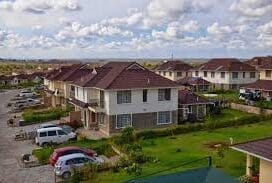Nulands Limited transforms land into thriving communities, offering secure and affordable property solutions across Kenya.
Your search results
Impactful Role of Foreign Investors in Kenya’s Property Market Trends
The Kenyan property market has become a magnet for foreign investors, significantly influencing its development and evolution. Foreign investors have made notable contributions by injecting capital, introducing new property development concepts, and setting market trends that continue to reshape the country’s real estate landscape. This blog explores the impactful role played by foreign investors in Kenya’s property market, examining their investments, market influence, and long-term impact on the sector.
1. Foreign Direct Investment (FDI) in Kenya’s Property Sector
Foreign direct investment has been a major driver of growth in Kenya’s real estate market over the past decade. According to the Kenya National Bureau of Statistics (KNBS), foreign investment in the property sector accounts for a significant percentage of the total FDI inflows into the country, primarily due to Kenya’s strategic location, political stability, and expanding infrastructure. Foreign investors, especially from Europe, the Middle East, and Asia, have shown a keen interest in Kenya’s real estate market, with their investments focused on both residential and commercial properties.
2. Residential Developments: Catering to High-End and Middle-Income Markets
Foreign investors have particularly impacted the high-end residential property market in Kenya. Areas like Karen, Westlands, Runda, and Lavington in Nairobi have witnessed the development of luxury homes, gated communities, and serviced apartments funded by foreign capital. These developments are tailored for affluent locals, expatriates, and foreign investors, offering modern amenities, high security, and proximity to key business hubs.
In recent years, foreign developers have also begun to focus on affordable housing projects. This shift is largely driven by the Kenyan government’s affordable housing agenda, which aims to bridge the country’s massive housing deficit. Foreign investors, in collaboration with local developers, have stepped up to create affordable housing units, particularly in satellite towns such as Athi River and Ruiru, providing essential housing solutions to Kenya’s burgeoning middle class.
3. Commercial Investments: A Growth Catalyst
Foreign investments have spurred the growth of commercial real estate in Kenya, particularly in the capital, Nairobi. International companies and multinationals have set up regional headquarters in prime business districts such as Upper Hill and Westlands. This influx of foreign capital has led to the development of high-grade office spaces, shopping malls, and mixed-use developments.
Foreign investors have also contributed to the rise of industrial parks and logistics hubs in key areas like Mombasa and along the Northern Corridor. With the growth of e-commerce and trade, there has been an increasing demand for warehousing, storage, and distribution centers, attracting further foreign investment.
4. Impact of Foreign Investors on Market Prices and Trends
One of the most visible effects of foreign investments in Kenya’s real estate market is the increase in property prices, particularly in Nairobi. High-end residential and commercial property prices in affluent neighborhoods have skyrocketed due to increased demand from foreign buyers and developers. While this trend has led to profitability for investors, it has also raised concerns about affordability for local buyers and tenants.
Foreign investors are also influencing the adoption of sustainable building practices and smart technologies in real estate development. High-quality, eco-friendly, and energy-efficient developments, typically seen in foreign-backed projects, are becoming more common in Kenya, setting new benchmarks for local developers.
5. Key Investment Areas and Growth Opportunities
Foreign investors have focused their attention on specific segments of the property market, where they see the highest growth potential:
- Luxury Apartments and Hotels: Nairobi has become a hotspot for high-end apartments and luxury hotels, particularly driven by demand from foreign nationals, diplomats, and expatriates. Foreign developers continue to lead this segment with premium offerings.
- Retail Spaces: Kenya’s rapidly growing middle class has spurred the demand for retail outlets and shopping malls, leading to significant foreign investments in this sector. Malls like Two Rivers and The Hub Karen were developed with foreign capital.
- Industrial Properties: The growing industrial sector in Kenya, especially in logistics and warehousing, is receiving heavy foreign backing, particularly due to the growth of international trade and e-commerce.
- Affordable Housing: The government’s focus on affordable housing has attracted foreign developers interested in building large-scale housing projects in partnership with local authorities.
6. Challenges and Risks for Foreign Investors
While the property market in Kenya offers significant opportunities, foreign investors face several challenges. Land ownership laws, particularly concerning non-citizens, can be complex and restrictive. Foreign nationals cannot own freehold land but can acquire leases of up to 99 years. This limitation often necessitates partnerships with local entities to navigate legal challenges.
Moreover, political uncertainty and macroeconomic factors such as fluctuating currency exchange rates pose risks for foreign investors. The 2022 general elections, for instance, led to a temporary slowdown in property transactions as investors adopted a “wait-and-see” approach.
7. Influence on the Broader Market and Economic Growth
Foreign investors play a critical role in boosting Kenya’s economic growth. Their investments contribute to infrastructure development, job creation, and skills transfer. Foreign-backed projects, such as the development of major office parks, residential complexes, and shopping malls, have brought advanced building technologies, project management expertise, and new architectural designs to Kenya, enhancing the overall quality of construction.
Additionally, foreign investments in real estate have boosted tourism and hospitality by providing high-end accommodation and services, further fueling economic activity.
8. Sustainability and Long-Term Outlook
Foreign investors are also pushing the real estate sector toward sustainability. Green buildings, eco-friendly technologies, and energy-efficient designs are becoming common features in foreign-backed developments. This trend aligns with global efforts to reduce carbon footprints and promote environmental conservation.
In the long term, foreign investors are likely to continue shaping Kenya’s real estate landscape. With ongoing infrastructure projects such as the Lamu Port-South Sudan-Ethiopia Transport (LAPSSET) Corridor, the demand for commercial and residential properties is expected to rise, offering continued opportunities for foreign investment.
The Lasting Impact of Foreign Investors
Foreign investors are an essential force in Kenya’s property market, shaping its trends, influencing prices, and driving innovation in both residential and commercial sectors. Their presence has opened up new opportunities for development, brought in capital, and enhanced Kenya’s position as a key real estate investment destination in East Africa.
The ongoing collaboration between foreign and local developers will be critical in addressing the country’s housing shortage, fostering economic growth, and introducing sustainable building practices. As Kenya continues to develop, the role of foreign investors will remain pivotal in defining the future of the property market.






